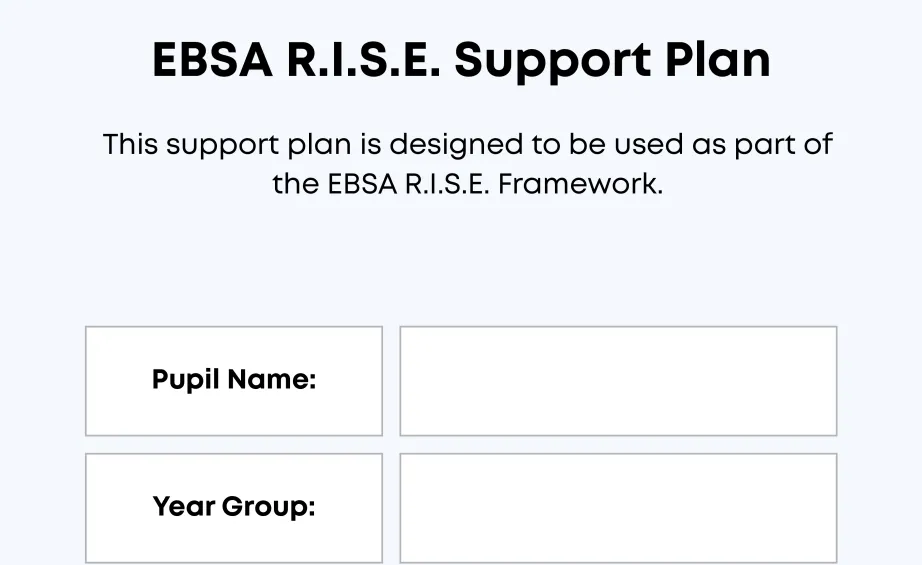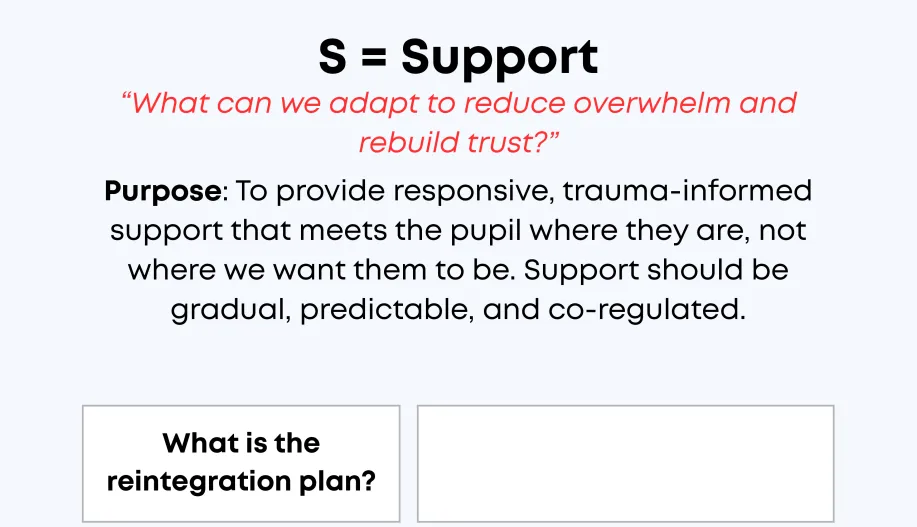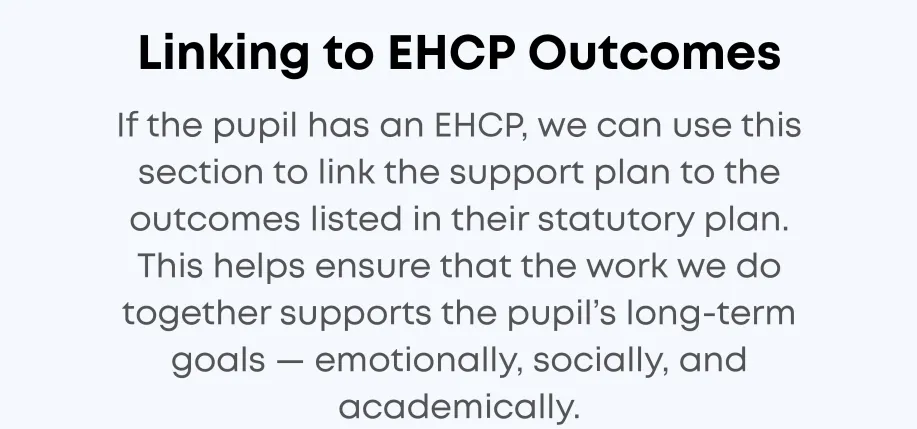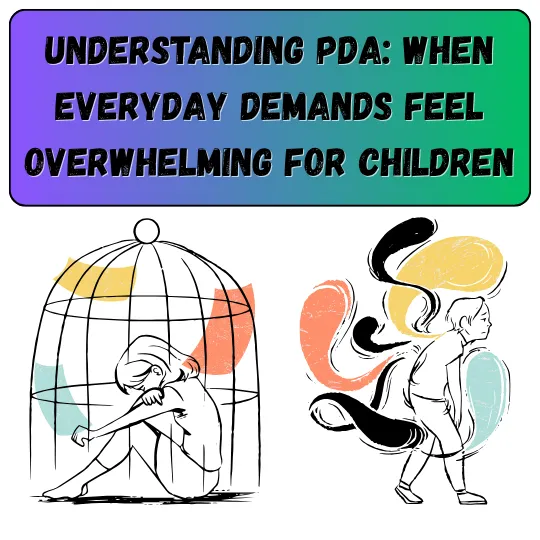EBSA Support Plan (R.I.S.E. Framework)

Emotionally Based School Avoidance (EBSA) can affect a young person’s learning, relationships, and well-being. Supporting children and families through this journey requires a clear, structured plan that recognises individual needs while building trust and resilience.
Our EBSA Support Plan, built around the R.I.S.E. framework, offers a practical way for schools and families to work together. It ensures early identification of needs, supportive strategies, and a collaborative approach that keeps the child at the centre.
What is R.I.S.E.?
- R – Recognise: Spot early warning signs and understand the root causes.
- I – Involve: Work with pupils, parents, and staff to co-create solutions.
- S – Support: Implement tailored strategies and adjustments.
- E – Evaluate: Review progress regularly and adapt as needed

Why use this EBSA support plan?

- Provides a structured, trauma-informed approach.
- Encourages meaningful pupil and parent voice.
- Builds consistency across staff teams.
- Helps track progress and identify what works.
Download the Support Plan
Download the EBSA R.I.S.E. Support Plan (PDF)
This resource can be used flexibly in schools, alternative provisions, and at home to create a personalised plan for children struggling with school attendance.



